Discover the Women of the Hall
These are the Inductees of the National Women’s Hall of Fame. Select any of the women to discover their stories and learn how they have influenced other women and this country.
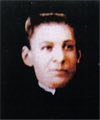 Frances Wisebart Jacobs
Philanthropy
1843
Kentucky
1994
Frances Wisebart Jacobs
Philanthropy
1843
Kentucky
1994

Frances Wisebart Jacobs
The driving force behind the concept of today’s United Way, founder of the Frances Jacobs Hospital (National Jewish Hospital for Immunology and Respiratory Medicine), an educator and philanthropist.
 Charlotte Perkins Gilman
Arts
1860
Connecticut
1994
Charlotte Perkins Gilman
Arts
1860
Connecticut
1994

Charlotte Perkins Gilman
Philosopher, writer, educator and activist who demanded equal treatment for women as the best means to advance society’s progress. Her landmark Women and Economics (1898) argued that until women gained economic independence, real autonomy and equity could not be achieved.
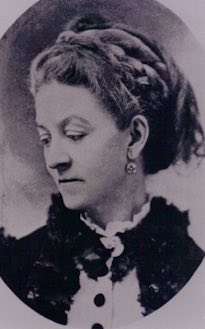 Jane Cunningham Croly
Arts
1829
England
1994
Jane Cunningham Croly
Arts
1829
England
1994

Jane Cunningham Croly
Journalist and driving force behind the American Club women’s movement that inspired thousands of women into a wide range of social reform activities. Probably the nation’s first woman syndicated columnist, Croly was also the founder of the General Federation of Women’s Clubs.
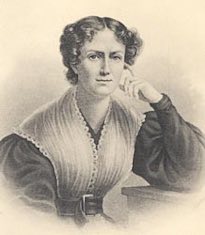 Fanny Wright
Humanities
1795
Scotland
1994
Fanny Wright
Humanities
1795
Scotland
1994

Fanny Wright
First American woman to speak out against slavery and for the equality of women. An inspiration to Stanton, Anthony and other women’s equality advocates, Wright wrote and spoke out publicly for equal rights for all at a time when women were not accepted in such roles.
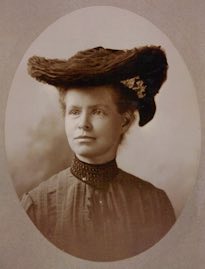 Nettie Stevens
Science
1861
Vermont
1994
Nettie Stevens
Science
1861
Vermont
1994

Nettie Stevens
Research biologist who identified that the “X” and “Y” chromosomes determined the sex of humans, ending scientific debate as to whether sex was determined by heredity or other factors. Stevens was a biology professor at Bryn Mawr College throughout her career.
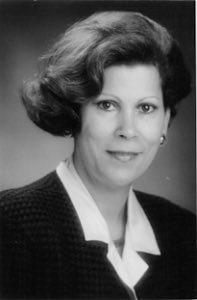 Antonia Novello
Government, Science
1944
Puerto Rico
1994
Antonia Novello
Government, Science
1944
Puerto Rico
1994

Antonia Novello
First woman and first Hispanic to be named Surgeon General of the United States. A pediatrician, Novello has used her position to alleviate suffering worldwide, especially for women and children.
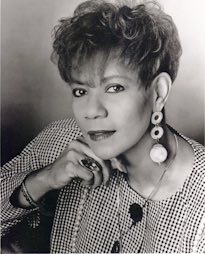 Wilma Rudolph
Athletics
1940
Tennessee
1994
Wilma Rudolph
Athletics
1940
Tennessee
1994

Wilma Rudolph
First American woman ever to win three gold medals in the Olympics. A track and field champion, Rudolph elevated women’s track to a major presence in the United States. She created the Wilma Rudolph Foundation to help train young athletes.
 Ella Baker
Humanities
1903
Virginia
1994
Ella Baker
Humanities
1903
Virginia
1994

Ella Baker
Premier behind-the-scenes organizer and co-founder of the Southern Christian Leadership Conference (SCLC), headed by Martin Luther King, Jr. Baker also helped establish the civil rights movement’s foremost student organization, the Student Non-Violent Coordinating Committee.
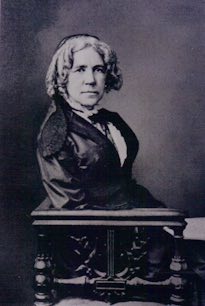 Maria Mitchell
Science
1818
Massachusetts
1994
Maria Mitchell
Science
1818
Massachusetts
1994

Maria Mitchell
An astronomer who discovered a new comet in 1847, Maria Mitchell was the first woman named to membership in the American Academy of Arts & Sciences. She was also a founder of the Association for the Advancement of Women.
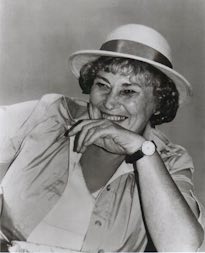 Bella Abzug
Government
1920
New York
1994
Bella Abzug
Government
1920
New York
1994

Bella Abzug
Civil rights and labor attorney elected to Congress from New York City in 1970. Abzug made her career as an advocate for women, the poor and those victimized by repression. A lifelong feminist activist, she played a major role in many national and international women’s conferences. Before her death, she chaired the Women’s Environment and Development Organization.
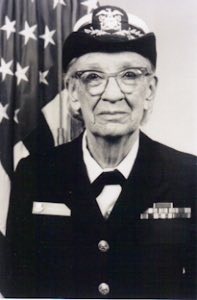 Grace Hopper
Science
1906
New York
1994
Grace Hopper
Science
1906
New York
1994

Grace Hopper
A mathematics genius and computer pioneer, Grace Hopper created computer programming technology that forever changed the flow of information and paved the way for modern data processing. In 1952, Hopper was credited with creating the first compiler for modern computers, a program that translates instructions written by a programmer into codes that can be read by a computer. Hopper was the first woman to hold the rank of Rear Admiral in the U.S. Navy.
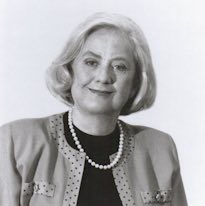 Muriel Siebert
Business
1928
Ohio
1994
Muriel Siebert
Business
1928
Ohio
1994

Muriel Siebert
First woman to own a seat on the New York Stock Exchange (1967). She was also the nation’s first-ever discount broker and the first woman to serve as Superintendent of Banks for the State of New York.
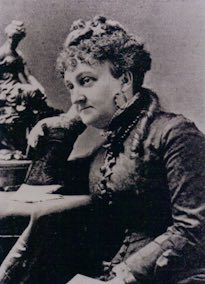 Myra Bradwell
Government
1831
Vermont
1994
Myra Bradwell
Government
1831
Vermont
1994

Myra Bradwell
America’s first woman lawyer. When denied permission to practice law in Illinois (despite passing the bar examination) because of her gender, she began publishing The Chicago Legal News, a very successful legal journal. When the laws changed in 1892, Bradwell was admitted to practice in Illinois and in the U.S. Supreme Court.
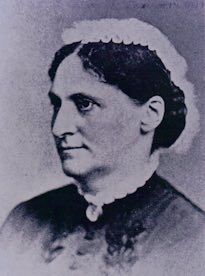 Linda Richards
Science
1841
1994
Linda Richards
Science
1841
1994

Linda Richards
Received the first diploma awarded by the nation’s first school of nursing. Richards dedicated her career to creating professional nurses training schools nationwide to improve both patient care and nurses’ skills.
 Shirley Chisholm
Government
1924
New York
1993
Shirley Chisholm
Government
1924
New York
1993

Shirley Chisholm
First African American woman elected to the U.S. Congress. Chisholm was also the first African American woman to receive delegate votes for the presidential nomination of a major party. A member of Congress for many years, she was also an educator and writer.
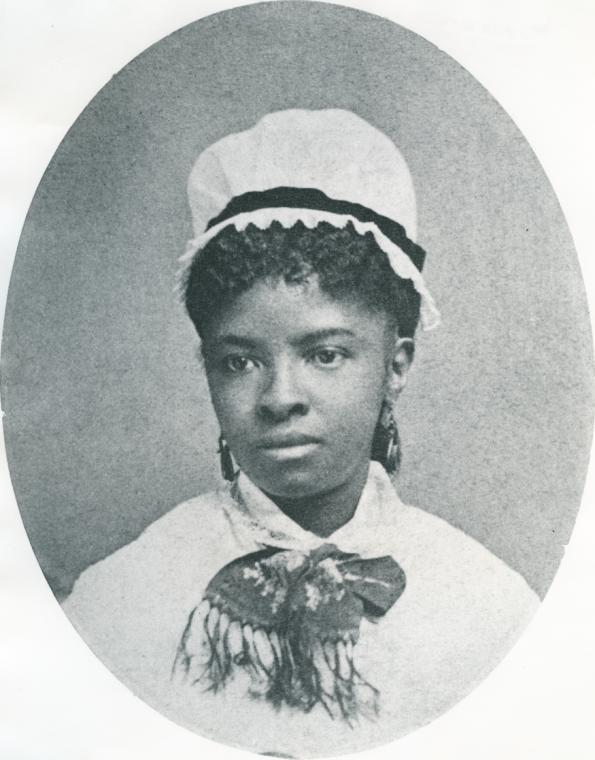 Mary Mahoney
Science
1845
Massachusetts
1993
Mary Mahoney
Science
1845
Massachusetts
1993

Mary Mahoney
First African American woman to study and work as a professionally trained nurse. Mahoney received her diploma from the New England Hospital in 1879, one of only four of 18 to pass the difficult course.
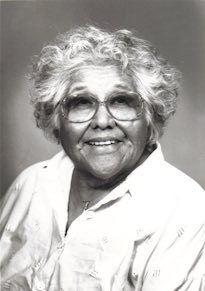 Katherine Siva Saubel
Arts, Education, Humanities
1920
California
1993
Katherine Siva Saubel
Arts, Education, Humanities
1920
California
1993

Katherine Siva Saubel
Founder of the Malki Museum at the Morongo Reservation in California. Born on a reservation in great poverty, Saubel became determined to preserve her tribe’s culture and language, despite overwhelming odds. A learned ethno anthropologist, Saubel was a founder of this first museum run by Native Americans.
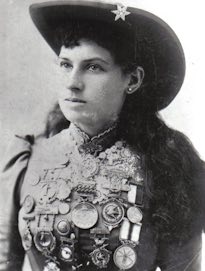 Annie Oakley
Arts
1860
Ohio
1993
Annie Oakley
Arts
1860
Ohio
1993

Annie Oakley
Markswoman, was probably the nation’s finest. A performer for many years with Buffalo Bill’s Wild West Show, Oakley was a staunch supporter of other women’s opportunities and raised funds to send needy women to college and nursing school.
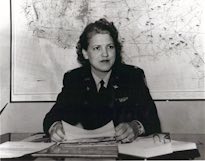 Jacqueline Cochran
Science
1906
1993
Jacqueline Cochran
Science
1906
1993

Jacqueline Cochran
First woman aviator to break the sound barrier. A leader and pilot, Cochran held many speed, distance and altitude records. She led the Women’s Air Force Service Pilots during World War II, becoming the first woman to pilot a bomber across the Atlantic Ocean.
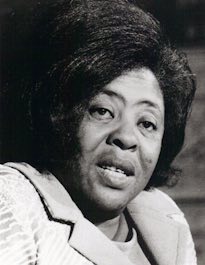 Fannie Lou Hamer
Humanities
1917
Mississippi
1993
Fannie Lou Hamer
Humanities
1917
Mississippi
1993

Fannie Lou Hamer
Mississippi sharecropper and organizer of the Mississippi Freedom Party, which challenged the white domination of the Democratic Party. Hamer succeeded in integrating the state delegation, and she was a tireless champion for poor minorities in her state and nationwide.
 Wilma Mankiller
Humanities
1945
Oklahoma
1993
Wilma Mankiller
Humanities
1945
Oklahoma
1993

Wilma Mankiller
First woman elected Principal Chief of the Cherokee Nation. As Chief, Mankiller brought about major economic and social improvements for her tribe, including better health care, economic development, and education.
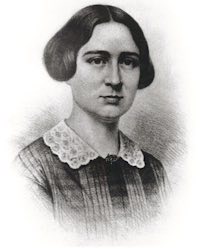 Antoinette Blackwell
Humanities
1825
New York
1993
Antoinette Blackwell
Humanities
1825
New York
1993

Antoinette Blackwell
First American woman ordained a minister by a recognized denomination (Congregational), despite great opposition to women in the ministry. Blackwell was a pastor, mother of seven children, and wrote many books and essays.
 Betty Friedan
Humanities
1921
Illinois
1993
Betty Friedan
Humanities
1921
Illinois
1993

Betty Friedan
Reshaped American attitudes toward women’s lives and rights through decades of social activism, strategic thinking and powerful writing. Her book The Feminine Mystique (1963) triggered the contemporary women’s movement. Her latest work is the best-selling The Fountain of Age.
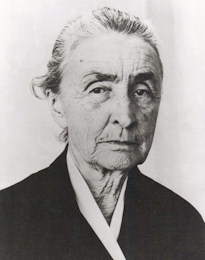 Georgia O'Keeffe
Arts
1887
Wisconsin
1993
Georgia O'Keeffe
Arts
1887
Wisconsin
1993

Georgia O'Keeffe
Artist and perhaps the best-known American woman painter. An American original in both her lifestyle and painting, O’Keeffe produced works of high energy and vision throughout her long life.
